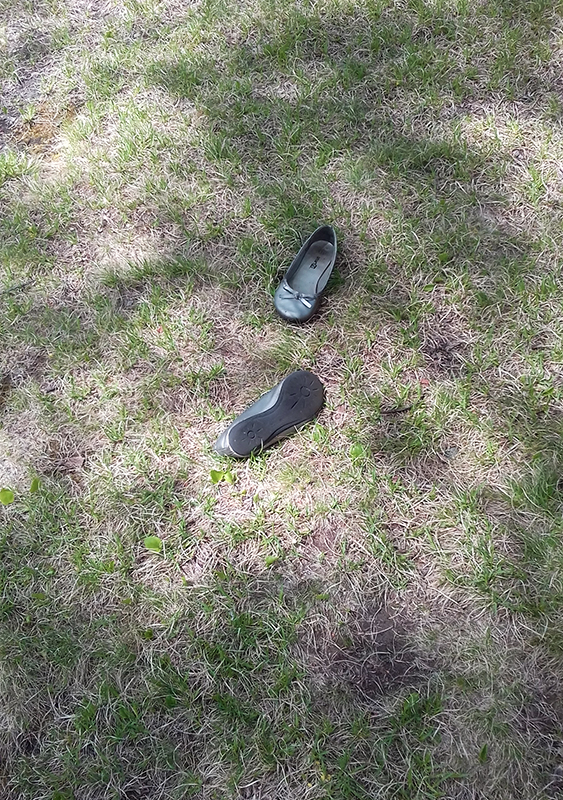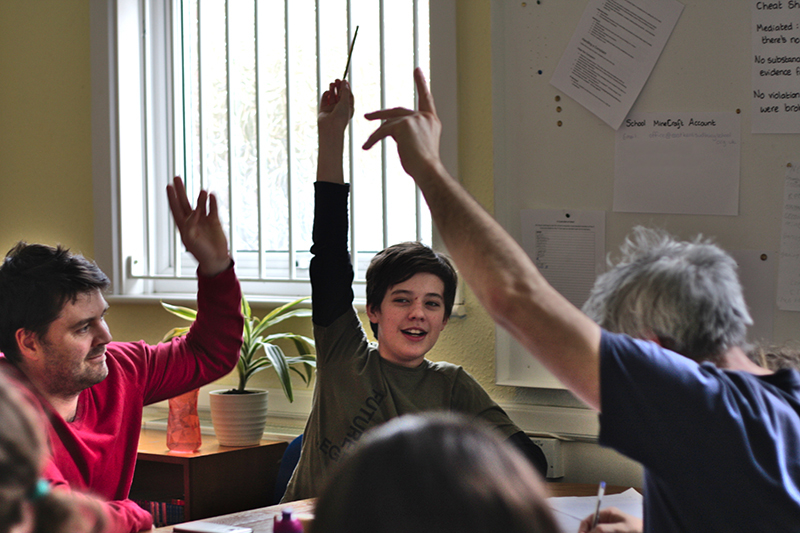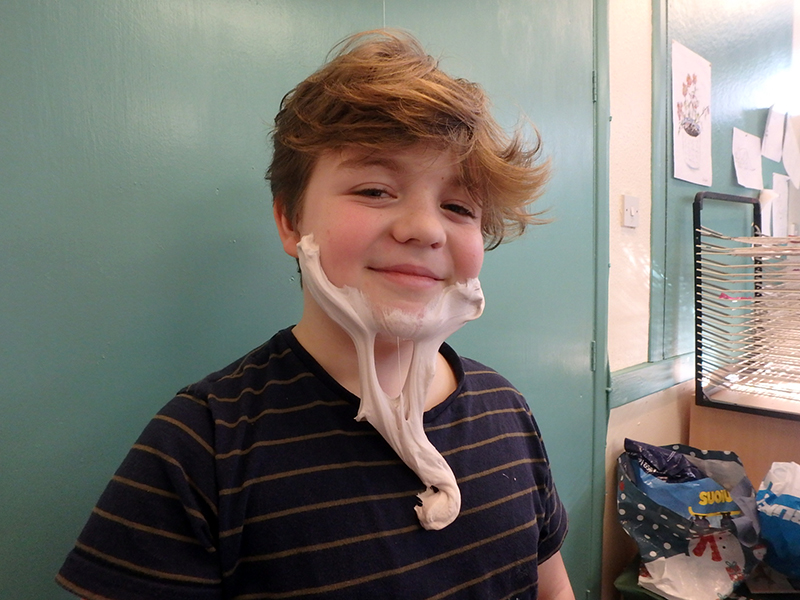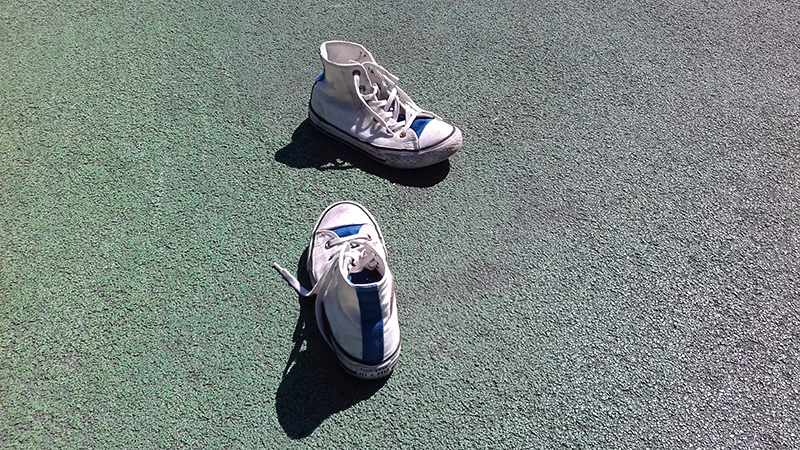A journey from Primary school teaching to East Kent Sudbury Staff
Imagine you wear a pair of tight shoes every day. You might feel quite relieved to untie them a bit. Maybe there is some cream that you could apply at the end of the day to soothe them. Maybe some state-of-the-art, hi-tech soles will help. There could be a whole host of things you could try. You can try them all one by one, find the one that helps you most and put some ‘strategies’ in place every day so you find the most relief that you can. Now you can start to focus on where you’re going and maybe start to make progress. And of course progress is good isn’t it? We can evidence it and everyone can feel slightly better can’t they?

If someone were to ask you. Have you tried taking them off completely? Why are you even wearing them? It might sound strange. Bit scary maybe when you’ve got so used to wearing them. I mean, they do keep you warm and they do protect you, they do have some basic function. But they are too tight. How safe is it to take them off, especially when you look around and everyone else seems to be wearing them.
I guess you have had enough of shoe metaphors by now. Of course, the tight shoes represent mainstream education and it feels like to me, ever since I started teaching, those shoes are getting increasingly tighter.
As a qualified primary school teacher, home-education tutor and play-therapist I feel like I’ve worked on, noticed and developed a whole host of methods to help children cope and manage their education in schools. As well as to explain these methods to parents. As a teacher your aim is to well, ‘teach’ and as a therapist your aim is to help others achieve a sense of peace with their place in the world. In my opinion the two should overlap in large parts. At the moment it feels like they couldn’t be further apart. You get your education within the school and if you’re not on track then we have to look for a problem. It must be more homework, change set, try this, try that. Just like the problem with the tight shoes you might find something that helps a little and you can feel that you’ve done quite a good job and children have made progress. How to now get the knowledge in them a bit quicker and to make sure it sticks? If they aren’t enjoying school, struggling with a subject, not liking a teacher, how to give them a bit of a confidence boost, overcome anxiety, re-engage with learning. If you’re still wearing the shoes, I can come in quite handy with providing some relief.
At EKS, those shoes are well and truly off. So what does that make me. What about the host of skills and methods I’ve developed to help children in mainstream education? Am I the turkey that voted for Christmas?
I first became interested in Democratic Education about 5 years ago after reading about Summerhill. After some background reading and some research I wanted to know more. After finding out that EKS was in the planning phase I was keen to make contact and see how it works. My daughter is now 15 months old and I can’t imagine sending her to school. Maybe it’s because I’m a teacher myself and as part of my work I’ve tended to spend more time with children who aren’t enjoying their school experience or who are struggling. But I still want her to get out into the world as much as possible, build relationships, engage and experience life away from her parents. On top of that, career wise, I knew with the way things are, I didn’t want to be back in a mainstream school environment and if I could be part of a new community where I was far happier with the ethos then I wanted to be involved. It could be my dream job.
Now it’s only been one term so far and things are all still raw. Everyone is still finding their own place. Children are settling in, creating laws, working out the laws and breaking laws. The staff are there to set a tone, make sure everyone is safe and be reliable. It’s early doors and its exciting for both staff and children.

Johann Hari in his recent book ‘Lost Connections’ talks about the difference between extrinsic and intrinsic motivation. Extrinsic motivation is when you engage in something to get something out of it e.g. material goals or specific payoffs. In a mainstream school, it might be getting a better grade, being on yellow in the traffic light chart, getting that certificate in school assembly and (maybe most common) not getting in trouble for not learning. Intrinsic motivation is when you engage in something just for the sake of it. Just for the joy. It might be rolling around in the mud, reading the same book over and over again or kicking a football around. Studies show that when we achieve intrinsic goals we are significantly happier, less depressed and less anxious. Achieving extrinsic goals do not correlate with any increase in day-to-day happiness.

This is one of the many stand-out differences of EKS compared to mainstream schools. When I tell students about democratic schools their eyes light up. Far more children would actually choose to go to school and at its heart this is the most important thing for me. Children know far more the value of listening to their intrinsic motivations and for that reason well-being is nurtured. Mental health and well-being are huge issues among our children today and for too many years it has taken a backseat to the pursuits of mainstream education. At EKS learning is far more diverse, more spontaneous and holds more meaning for the individual. As a result of this it is a lot harder to evidence. It is there though and I think it will become more and more obvious over time.
I’ll finish with one more metaphor (sorry, not sorry). Statistically if you’re a goalkeeper saving a penalty you have more chance of saving a goal if you don’t dive and stay in the center of the goal. Goalkeepers know this, but it’s hard not to do anything. When faced with a problem one of the hardest things to do is nothing. You dive left or you dive right. At EKS it feels like as staff we are all learning ‘the art of doing nothing’ a lot of the time. And we are all confident that that can be just as helpful (If not more) as directing education ourselves.
As an aside, students at Sudbury schools enjoy quite literally taking their shoes off and frequently go barefoot during the day as illustrated by Fairhaven staff member here.

